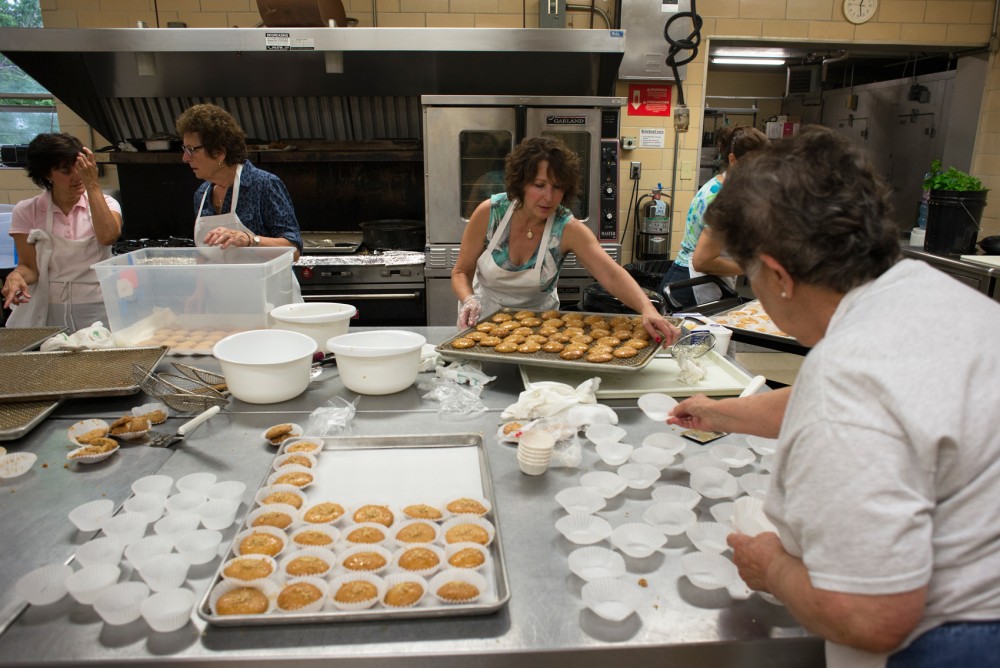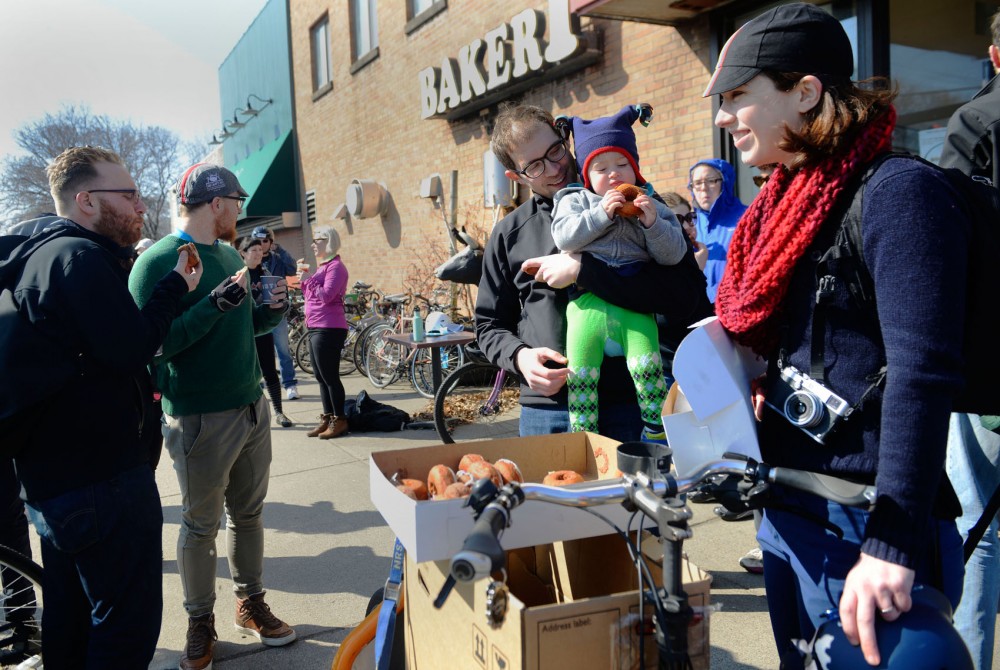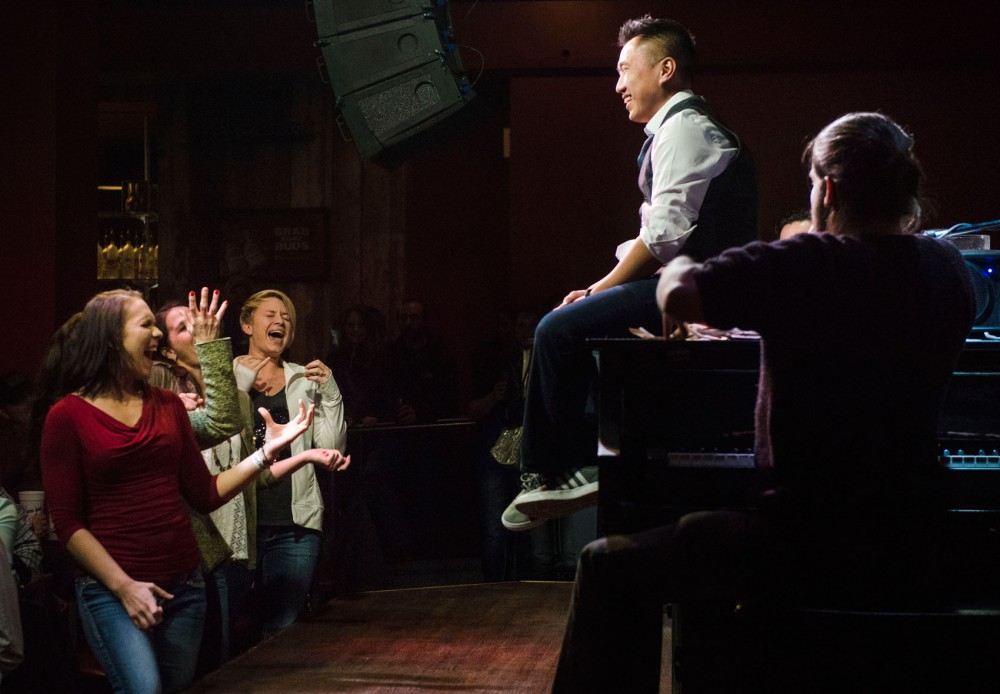What: BANNED! [The Title of This Event Has Been Censored], a lively panel discussion of literature and censorship
Who: Authors Ellen Hopkins, Pete Hautman, Pamela Klinger-Horn, James Klise and Charlotte Sullivan
Where: The Loft Literary Center, 1011 S. Washington Ave., Minneapolis
When: 2 p.m., Sunday
Whether asserting Harry Potter’s satanic origins or Captain Underpants’s poop-related insensitivity, young adult literature remains contested by overly protective parents who voice their unwarranted concerns to schools. In extreme cases, this causes schools to reassess their libraries’ selections.
In 2011, “The Hunger Games,” “Brave New World” and “To Kill A Mockingbird” were among the most challenged books in libraries and schools, according to the American Library Association’s Office for Intellectual Freedom.
Young-adult authors and English educators will convene at the Loft Literary Center’s “BANNED!” discussion Sunday to shed light on the lingering traces of censorship within public schools and libraries.
The panel includes New York Times-bestselling author Ellen Hopkins, whose debut novel made the ALA’s 2010 list of challenged books. The novel, “Crank,” details a high school-aged girl’s addiction to crystal meth.
“The book is loosely based on my own daughter’s story of meth addiction,” Hopkins said. “This is a story, though it’s fiction, that I lived.”
In 2010, a few apprehensive parents could not see past the searing subject matter of “Crank” and complained to the Humble Independent School District in Texas. The superintendent uninvited the young-adult author to the annual teen literature festival shortly thereafter.
“At that point, I decided I wasn’t going away quietly,” Hopkins said.
Soon, all of the remaining authors pulled out of the event in a concerted anti-censorship effort that forced the festival’s cancellation.
“I don’t just put words in my books to have them there. They’re there for specific reasons,” Hopkins said. “So for that book to be challenged, I think is ridiculous.”
Hopkins emphasizes a need for an open dialogue about drug addiction. The free verse she uses in “Crank” illustrates the gritty psychology of addiction, a blatant refusal to sugar-coat.
“I thought it was hugely important to tell this story and tell it honestly,” Hopkins said.
Young-adult literature represents an outlet for students to consider topics they may not think about otherwise. The overwhelming response to “Crank” encourages Hopkins to tour schools 100 days of the year in an effort to educate and enlighten students about topics considered taboo. The connection between young-adult readers and writers is more pronounced this way, as numerous fans frequently write letters and emails.
“I have thousands of letters in files from kids who’ve told me that they had considering this path and this book turned them off this path,” Hopkins said.
As both an author and high school librarian, “BANNED!” panelist James Klise also has a unique connection to his young fans. He corresponds with readers both virtually and in person at his Chicago area high school.
“That’s really gratifying,” Klise said. “I don’t know if that happens as much when you write for grown-ups.”
His debut novel, “Love Drugged,” won the ALA Stonewall Book Award and draws acclaim among young readers and critics alike for its discussion of a teen’s struggle to accept his sexual identity. The protagonist tries an experimental drug intended to “fix” his homosexuality, which he initially views as a burden.
“It’s common for closeted gay and lesbian teenagers to not want to be gay,” Klise said. “They want to be like everyone else in their class. They want to fit in like every teenager.”
“Love Drugged” and “Crank” represent important advances in young-adult literature, but Hopkins remains focused on bringing controversial matters to light.
With over 2 million copies in print, “Crank” still garners resistance. But events like “BANNED!” and the ALA’s “Banned Books Week” continue to raise awareness about censorship and its continued presence in schools and libraries.
If only one parent can influence a school board’s decision in hosting an author, censorship’s hold is alive and well, thriving on the trepidation of educators.
“They are people who want to push us backwards,” Hopkins said. “I refuse to shut up. I mean, I’m sorry, but I’m not going to.”










